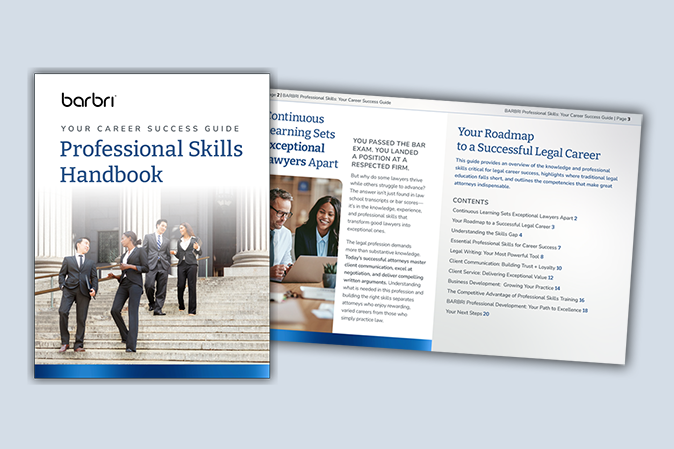Welcome! Use code NEWYEAR26 to unlock 25% off all expert-led CLE, CPE, and Professional Skills webinars, and 10% off annual passes.
About the Course
Introduction
This CLE course will guide corporate counsel on the implications of the Delaware Supreme Court's recent and significant decision in Kellner v. AIM Immunotech Inc. regarding advance notice bylaws. The panel will discuss the standards clarified by the court, the impact on corporate governance, and best practices for drafting and enforcing advance notice bylaws to ensure compliance and avoid litigation.
Description
Advance notice bylaws require shareholders to provide prior notice of their intent to make a director nomination or other proposal within a set timeframe (typically 30-120 days) before a shareholder meeting. This allows the board and other shareholders enough time to gather information and make informed decisions on the proposed action.
Courts typically enforce advance notice bylaws that are reasonable, unambiguous, and do not interfere with the stockholder franchise. Consistent with that, the Delaware Supreme Court in Kellner v. AIM Immunotech Inc. struck down several advance notice bylaw provisions because they appeared intended to thwart a stockholder's proxy contest and impede its right to nominate directors.
The Kellner decision has significant implications for the drafting and enforcement of advance notice bylaws, which are crucial for ensuring a fair and orderly process for director nominations and shareholder proposals. Kellner helps to clarify the review standards for such bylaws, emphasizing the need for them to be reasonable, equitable, and not overly restrictive. Corporate counsel of Delaware corps. should understand Kellner’s implications in order to effectively revise or draft advance notice bylaws that will withstand judicial scrutiny.
Listen as our panel of experts discusses the key aspects of the ruling, including the standards for facial validity and equitable application. The panel will also provide practical guidance on how to navigate these complex issues when drafting advance notice bylaws.
Presented By

Mr. Cannizzaro, III, chairs the firm's Corporate/Mergers & Acquisitions practice. He is a seasoned corporate lawyer, focusing on mergers and acquisitions, corporate governance, alternative entity issues, and securities. Mr. Cannizzaro,III, represents public and private companies and private equity sponsors in complex US and cross-border transactions, including mergers, acquisitions, investments, dispositions, spinoffs, joint ventures, energy infrastructure projects, restructuring, bankruptcy and distressed M&A, and SPACs. Beyond discrete transactions, he provides counsel to international and domestic clients in connection with their ongoing business and operations.

Mr. Levi’s practice focuses on ongoing compliance obligations under U.S. securities laws and corporate governance matters, as well as public and private securities transactions. He counsels clients on all aspects of their compliance with the U.S. securities laws and the rules of the major U.S. exchanges, including the preparation of periodic and current reports, proxy statements, registration statements on Form S-8, and insider reports and related liability issues under Sections 13 and 16 of the U.S. Securities Exchange Act of 1934. Mr. Levi assists public companies in connection with best corporate governance practices, disclosure questions, board and committee independence, and shareholder activism. He also regularly represents issuers and banks in a range of equity and debt transactions, including registered offerings, Rule 144A and Regulation S offerings and liability management transactions.

Mr. Nwaeze is a first-chair trial attorney who helps clients resolve complex corporate and commercial disputes. His practice includes matters involving shareholder rights; actions arising under Delaware General Corporation Law and Delaware common law; lawsuits stemming from mergers, acquisitions and other corporate transactions; and breach of contract matters. Mr. Nwaeze also represents clients in state and federal class actions involving securities laws, statutory and common law fraud, breaches of fiduciary duty and the Fair Credit Reporting Act.
-
This 90-minute webinar is eligible in most states for 1.5 CLE credits.
-
Live Online
On Demand
Date + Time
- event
Thursday, February 6, 2025
- schedule
1:00 p.m. ET./10:00 a.m. PT
- Overview of the Kellner decision
- Standards for drafting advance notice bylaws
- Enforcement and challenges
- Practical guidance for corporate counsel
The panel will review these and other critical issues:
- Understanding Kellner’s implications
- Identifying and addressing potential challenges to current advance notice bylaws
- Drafting or revising advance notice bylaws that can withstand scrutiny
- Language and/or circumstances most likely to invite scrutiny of advance notice bylaws or a successful challenge
- Communicating bylaw requirements effectively to shareholders.
Unlimited access to premium CLE courses:
- Annual access
- Available live and on-demand
- Best for attorneys and legal professionals
Unlimited access to premium CPE courses.:
- Annual access
- Available live and on-demand
- Best for CPAs and tax professionals
Unlimited access to premium CLE, CPE, Professional Skills and Practice-Ready courses.:
- Annual access
- Available live and on-demand
- Best for legal, accounting, and tax professionals
Unlimited access to Professional Skills and Practice-Ready courses:
- Annual access
- Available on-demand
- Best for new attorneys
Related Courses
Recommended Resources

Human Expertise at the Heart of Reliable Generative AI Use and Communication
- Business & Professional Skills



